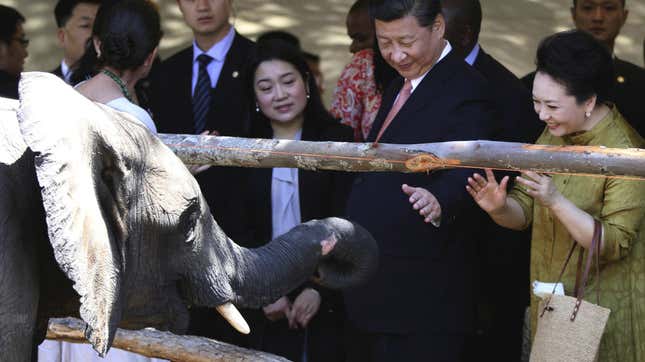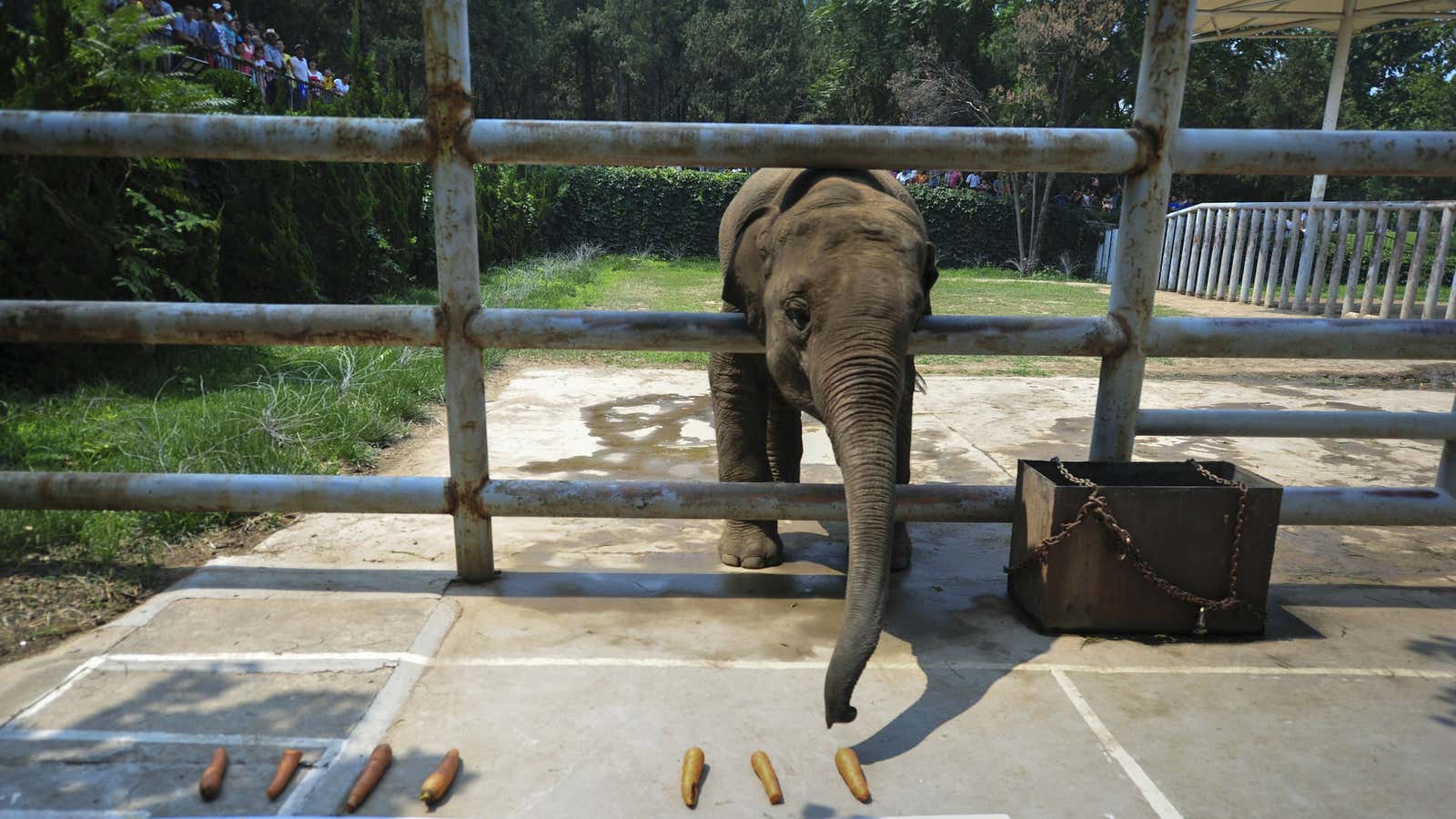Zimbabwe plans to capture and send more wild elephants to zoos and safari parks in China, a country not known for strong animal-rights protections.
On a Dec. 31 visit to a safari park in China’s Guangdong province, Zimbabwe’s minister of environment Oppah Muchinguri fed a carrot to a Zimbawean elephant that had been sold to China last year, and told journalists, ”We are happy that young African animals have been well accommodated here in China… We are willing to export more in the years to come to help the preservation of wild animals.”
The southern African country has justified wildlife exports over the years by claiming its elephant population has grown too large—85,000 according to Muchinguri—especially as the country faces a years-long drought.
The Convention on International Trade in Endangered Species of Wild Fauna and Flora (CITES) deemed last year’s sale of 24 baby elephants for about $40,000 each to China as legal, highlighting promises that the elephants would not be used for performances and would be free to roam 1.3 million square meters of land. The Chinese government has also promised to do more to curtail demand for ivory, used in traditional Chinese medicine. (China is the world’s largest consumer of ivory.)

Animal rights advocates say that turning over elephants to China, where animal protections are weak, is a mistake. Seven of eight baby elephants sent to China in 2010 have since died, according to Johnny Rodrigues, chairman of the Zimbabwe Conservation Task Force. One very sickly elephant from that batch remains, according to the nonprofit.
“They haven’t learned their lesson,” Rodrigues told Quartz. “To do what they are doing is inhumane and it’s wrong. We should be looking after these animals in Africa.”
The elephants are caught when they are young and kept in confinement for months until they become accustomed to humans. Then they are exported. Rodrigues expects that 165 wild animals from Zimbabwe, including elephants and lions, a threatened species, will be sold to China this year.
The next batch of elephants is likely bound for Chimelong Safari Park in Guangdong Province, where the 24 were sent last year. Photos taken by activists with Nature University, an animal rights group based in China, showed those elephants with untreated wounds and behaving aggressively toward each other, a sign of stress. Advocacy groups have documented maltreatment and forced animal performances at Chimelong.
Researchers say that domesticating a wild elephant and keeping it in captivity drastically shortens its lifespan. Infant mortality for elephants in captivity is almost triple the rate it is in the wild. Captive elephants live to around 40, while those in the wild can survive for up to 70 years.
The Zimbabwe Conservation Task Force estimates that Zimbabwe is home to between 35,000 and 40,000 elephants, far below the 85,000 that Muchinguri quoted. More are being threatened by local poachers. Zimbabwe has also said it would like to export its elephants to France and the United Arab Emirates.
China isn’t the only country seeking elephants from Africa. United States wildlife officials are considering petitions to import 18 elephants from Swaziland to zoos in Texas, Kansas, and Nebraska.
